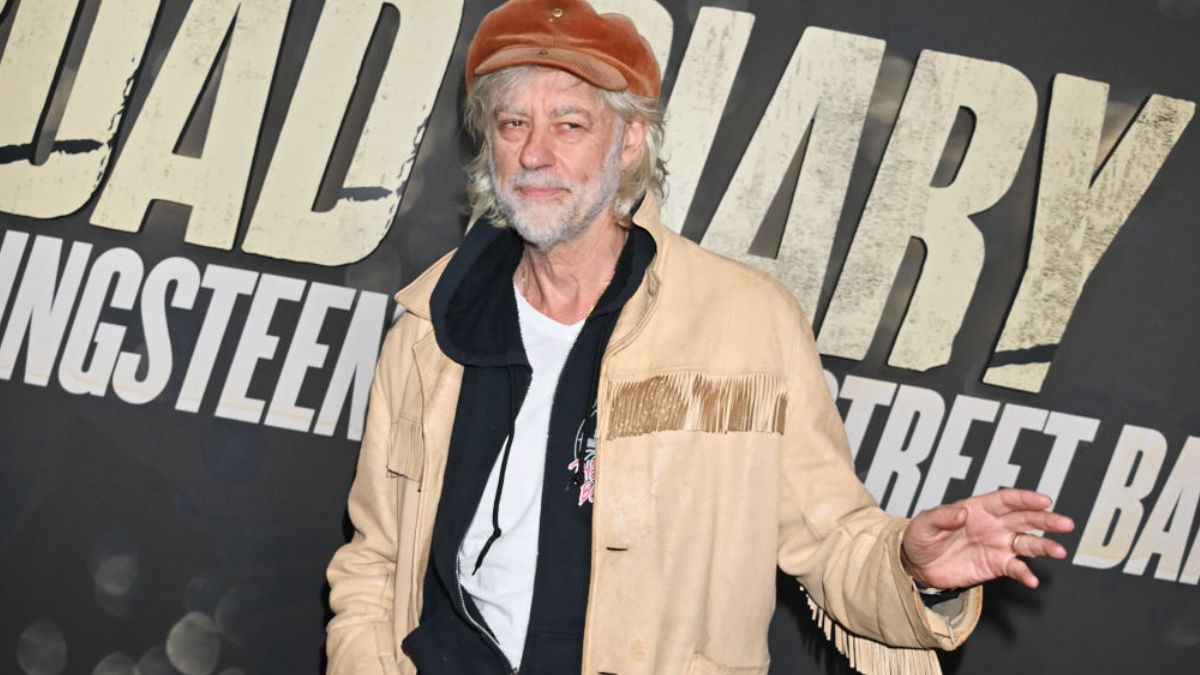‘We wish it were other but it is not:’ Bob Geldof continues to defend Band Aid against white savior criticisms

Been outside during Christmas at any point in your life? Then you’ll probably have heard the Band Aid song “Do They Know It’s Christmas”, created as a money-making response to the 1984 Ethiopian famine. It raised a lot of money for good causes, but at the same time people have pointed out that some elements of the song are just patronizing. Take for example lines like “Where nothing ever grows/no rain or rivers flow/Do they know it’s Christmastime at all” (Ethiopia has a majority Christian population, and it has river
Bob Geldof and Midge Ure created the song, and Geldof has been fiercely defending it for ages now. This time, however, someone who was actually part of Band Aid has criticized it. That would be Ed Sheeran, who appeared on the 2014 version. A new 40th anniversary edition of the song is about to come out featuring Sheeran as one of the many singers, but he didn’t actually give permission for his vocals to be used. After speaking to people with actual knowledge of Africa, he’s come to believe that the song simply promotes white saviorism.
He wrote on his Instagram Stories, “My approval wasn’t sought on this new Band Aid 40 release. Had I had the choice I would have respectfully declined the use of my vocals. A decade on and my understanding of the narrative associated with this has changed, eloquently explained by @fuseodg. This is just my personal stance, I’m hoping it’s a forward-looking one. Love to all x.”
Fuse ODG, who is Ghanaian-English, worked with Sheeran on the track “Boa Me” back in 2017. And clearly Sheeran has taken on board what he had to say about Band Aid. Fuse ODG’s post, the one Sheeran linked to, said that initiatives like Band Aid “perpetuate damaging stereotypes that stifle Africa’s economic growth, tourism, and investment, ultimately costing the continent trillions and destroying its dignity, pride and identity.”
Geldof didn’t respond to Sheeran’s post until Saturday. He did an interview with The Sunday Times about Band Aid—he’s the only person who ever seems to get asked about it—and the subject of Sheeran’s criticism came up. Geldof said:
“This little pop song has kept millions of people alive. Why would Band Aid scrap feeding thousands of children dependent on us for a meal? Why not keep doing that? Because of an abstract wealthy-world argument, regardless of its legitimacy? No abstract theory regardless of how sincerely held should impede or distract from that hideous, concrete real-world reality. There are 600 million hungry people in the world — 300 million are in Africa. We wish it were other but it is not. We can help some of them. That’s what we will continue to do.”
No-one is doubting Geldof’s sincerity or good intentions, but Band Aid still portrays Africa as a dangerous place that needs white people to sort it out, and that’s what people like Fuse ODG take issue with. Fuse ODG has spoken at length about his problems with Band Aid during the run-up to Christmas and the re-release of the song. Today he posted a clip of himself appearing on the BBC to give an interview about the matter, and explain why he turned down Band Aid when approached to do it for the 30th anniversary.
“I expressed my concerns [to Geldof] and he just refused to listen,” he said. “He said to me that he’s been using this model for the past 30 years and he’s not going to change it now. Again I tried to explain to him that the long term damages of this, although we’ll be able to raise funds in the short term, the long term damage was that people would not go to Africa.” Bob Geldof may have raised a lot of money for Africa, but his complete unwillingness to listen to African perspectives is a big problem.
Have a tip we should know? tips@themarysue.com